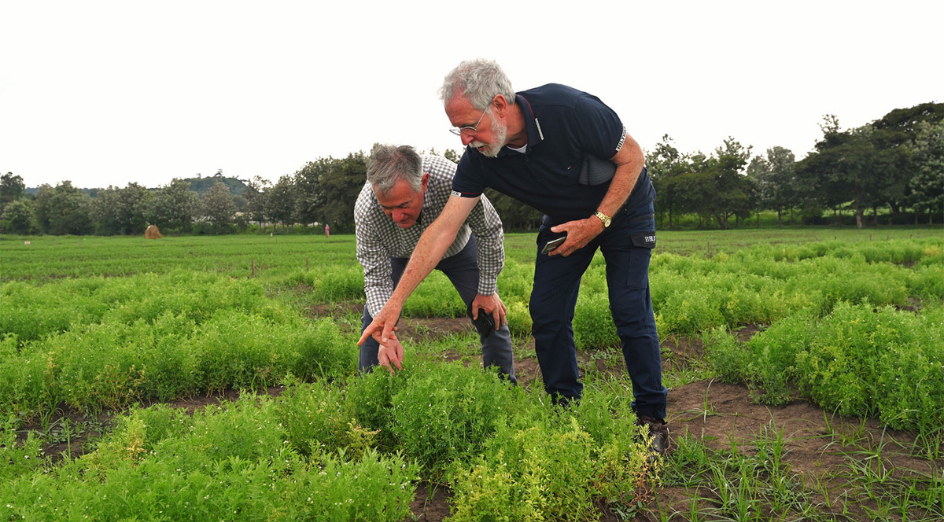Ethiopia’s highlands, once known for their ideal lentil-growing conditions, have faced declining yields in recent years. A combination of pests, diseases, and limited access to healthy seed has led to a reduction in lentil-growing areas, from over 119,000 hectares to under 70,000 hectares in 2021-22. This has threatened farmers' livelihoods and prompted Ethiopia to import lentils to stabilise the market.
To address this, a new virology lab has been established in Ethiopia as part of a $2.14 million project funded by the Australian Centre for International Agricultural Research and led by UWA. The project also includes specialized help and training from the International Center for Agricultural Research in Dry Areas.
For the first time, the lab equips local researchers with the tools and resources needed to diagnose a wide range of viral diseases affecting crop legumes and to differentiate them from other issues such as fungal diseases or insect damage.
Previously, farmers had to rely on expensive and time-consuming foreign diagnostic services. With the introduction and training for on-site testing methods like the Tissue Blot Immunoassay, farmers now benefit from more efficient, cost-effective virus identification. This reduces the need for pesticides, saves money on chemical sprays, and has a positive environmental impact.
The lab’s influence extends beyond diagnostics. Ethiopian farmers are also trained to recognise virus symptoms, understand virus vectors, and use virus-free seeds. The lab’s research also focuses on breeding virus-resistant lentil varieties, producing clean seeds, and deploying sustainable pest management techniques. These strategies are enhancing lentil production and improving food security for Ethiopian farmers.
Professor Martin Barbetti from the UWA School of Agriculture and Environmental Sciences emphasises the global significance of this work: "The advances made by Ethiopian virologists not only benefit Ethiopia but also have the potential to help with protecting lentil crops in regions like South Asia, North Africa, and Australia, where similar viral threats exist."

This initiative aligns with the Ethiopian government’s commitment to modernising agricultural practices and boosting lentil production through research. By training local virology experts and strengthening agricultural resilience, Ethiopia is taking important steps towards reducing imports and ensuring sustainable agriculture.
Through projects like this, IOA continues to support sustainable agricultural development and enhance food security across the globe.
Media references
Professor Martin Barbetti (UWA School of Agriculture and Environment)
Ana Mendigutxia Balil (Communications Officer, The UWA Institute of Agriculture) 08 6488 1650
